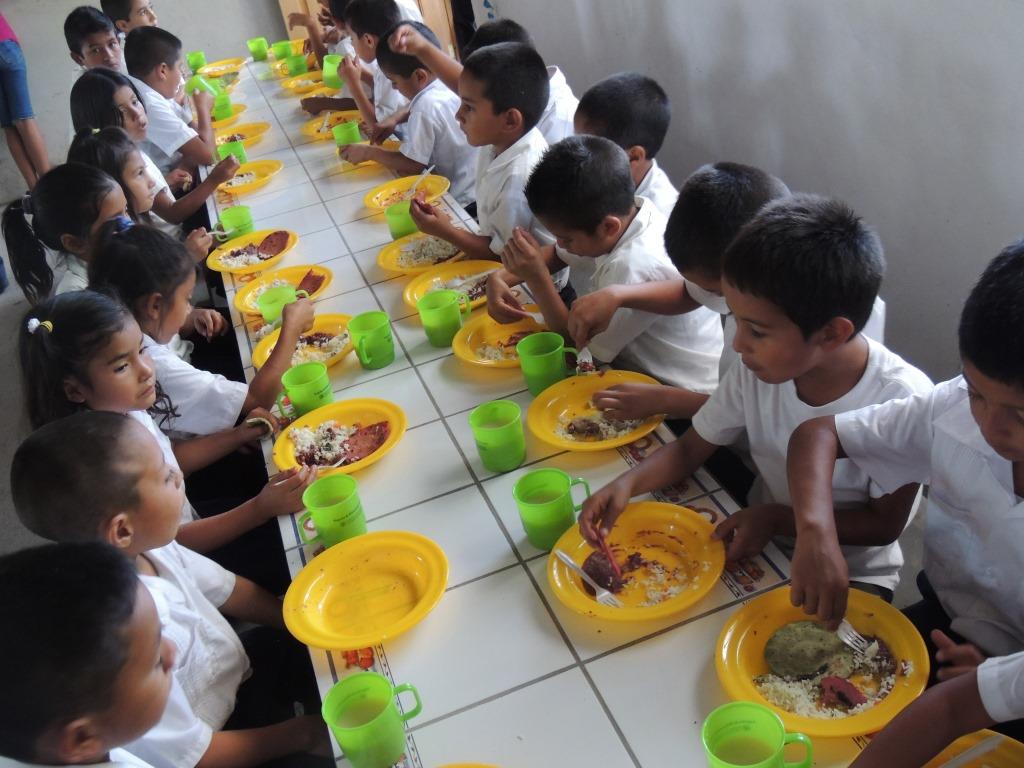Adequate feeding at school is an efficient way to face the food insecurity data revealed by SOFI 2022
Najla Veloso*
With the food insecurity of the population worsening, there are many global challenges right now, as evidenced by the latest report “The State of Food Security and Nutrition in the World (SOFI)”, published this month by the FAO and other UN agencies. High inflation and unemployment, reduction in the supply of food and inputs due to conflicts, protectionist measures to reduce exports, in addition to the consequences of the pandemic.
SOFI showed that in Latin America and the Caribbean (LAC), around 56 million people suffered from malnutrition last year, while another 93.5 million experienced severe food insecurity. Severe and moderate food insecurity amounted for 267.7 million people. It is the same to say that almost four out of every ten inhabitants of our region cannot feed themselves adequately.
Hunger, in most cases, is not caused by lack of food, but by lack of income. It is a problem derived from the poverty and inequality that characterize our societies. Unfortunately, these social factors have been exacerbated by the recent health crisis.
In LAC, fortunately, more than three dozen countries have public policies to guarantee food for an important part of their population: students. There are around 85 million boys, girls, adolescents and young people served by school feeding programmes in the region. And it is not an exaggeration to say that the supply of food at school has been a protagonist in the fight against food insecurity.
School feeding is one of the most articulated and articulating policies that a country can have. It involves various government sectors and allows easy dialogue with the society as a whole. In addition, there is no person who is directly against the school provision of food for students.
An example is the implementation of public purchases by small farmers, which not only guarantee fresh, healthy, adequate, tasty and regional food to students, but also favor local development and guarantee income and dignity to women and men who in, many times, are among the most vulnerable populations in their countries. In addition, this teaches students to value the product of their land, their culture and gives visibility to local biodiversity. It is a path that also redirects the use of public resources to promote more sustainable, fair and resilient food systems.
In addition to dialogue with students and farmers in the area, this policy affects the construction of healthy lifestyles. That is why, as part of this program, we educate students about what is eaten and what is offered at school, allowing them to make more conscious decisions not only in the educational space but also throughout their lives, as a way of promote a healthier and more sustainable food culture for this and future generations.

No one learns hungry
From a cognitive point of view, a school meal that is healthy, made up of vegetables and fruits, dairy products, eggs and cereals, means providing a condition of success, better performance, greater permanence and greater capacity of attention on the part of the students. Therefore, when we are faced with data such as those of the latest SOFI report, it is necessary to reaffirm the importance of school feeding policy as a tool capable of guaranteeing the human right of approximately 20% of the population of a country.
Therefore, we reaffirm the value of direct dialogue with the countries, promoting the international cooperation offered by the Brazilian government, especially by the Brazilian Cooperation Agency (ABC) and the National Fund for Educational Development (FNDE). With FAO, they have made available the experience of more than 67 years of the National School Feeding Program (PNAE), as a reference for positive structural changes in our region.
With the work carried out by the Brazil-FAO International Cooperation since 2009, there have been significant improvements in the quality of many of the school feeding programmes in the region. As an example, we can mention the development of specific school feeding laws in 6 countries and various regulatory frameworks, the increase in student coverage, the greater allocation of resources to school feeding actions, the formal establishment of purchases from family farming in 13 countries, the strengthening of the infrastructure of thousands of schools, the creation of intersectoral policy dialogue tables and the involvement of other social segments, such as parliamentarians and civil society.
All these actions were promoted based on technical support, knowledge exchange and capacity development, seeking to guarantee the sustainability of the school feeding policy. Especially with regard to guaranteeing the necessary resources, continuity and permanence, even when there is changes in management and economic and health crises.
In short, we work so that school feeding is seen as a State policy and not a government policy. So that, under any circumstance, the human right to quality food is guaranteed to students in all schools. We understand that it is of fundamental importance to recover the economies, jobs and income of families, because they are crucial to guarantee food and nutritional security in the population.
Regarding production, the challenge is to produce healthy food in a more accessible way, with incentives for small producers, promoting short circuits of production and consumption.
We know that no one learns hungry at school and that it is understood that without learning, quality education and health, it is not possible to intervene effectively in this situation. One of the most efficient ways that the State can deal with the emerging data is to feed its students with quality, healthy and fresh food, acquired locally, and implement food and nutrition education activities throughout the year.
*Coordinator of the project Consolidation of School Feeding Programmes in Latin America and the Caribbean


